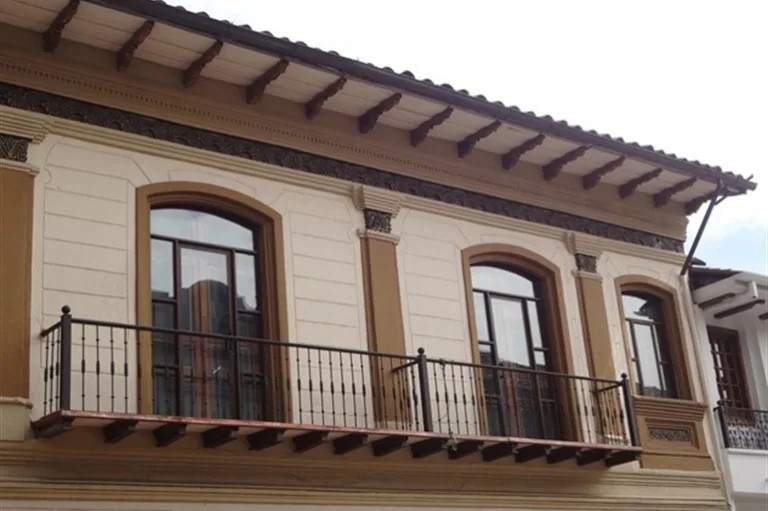Was Julian Assange spied on in the Ecuadorian embassy? Extradition could hinge on the answer
Julian Assange’s fight against extradition to the U.S. could last years, and his argument could hinge on reports he has been illegally spied upon and his sensitive information given to the CIA.

Julian Assange after he was booted out of the Ecuadorian embassy in London in May.
Meanwhile, more than 100 doctors from across the world have written to the Australian government, urging it to act and “protect the life of its citizen”, in a letter to be delivered to the foreign affairs minister on Tuesday, amid warnings Assange’s health continues to deteriorate.
A judicial investigation by the Audiencia Nacional in Spain, the country’s national court, is acting on allegations that while Assange held asylum inside the Ecuadorian embassy in London, the Wikileaks founder was spied on, listened to and had his computer data scraped and that this information was sold to U.S. intelligence agencies.
Speaking to the International Law Association in Sydney, Guy Goodwin-Gill, a professor of law at the University of New South Wales who has provided advice on asylum issues to the Assange legal team, said Assange’s fight against extradition would be a long contest and that allegations he was being spied on would likely form part of legal arguments he could not receive a fair trial in the U.S.
Assange is currently being held in London’s Belmarsh prison, ahead of an extradition hearing that will begin in February. A U.S. grand jury has indicted him on 18 charges – 17 of which fall under the Espionage Act – around conspiracy to receive, obtaining and disclosing classified diplomatic and military documents.
If convicted, Assange faces a prison term of up to 175 years.
Assange’s European arrest warrant on allegations of sexual assault in Sweden has been cancelled, with prosecutors arguing there was little chance of a conviction being obtained.
But medical doctors have banded together to urge authorities to halt any extradition plans, as well as urgently release him for medical care outside of the prison.
“That we, as doctors, feel ethically compelled to hold governments to account on medical grounds speaks volumes about the gravity of the medical, ethical and human rights travesties that are taking place,” their letter, seen by the Guardian, states.
“It is an extremely serious matter for an Australian citizen’s survival to be endangered by a foreign government obstructing his human right to health. It is an even more serious matter for that citizen’s own government to refuse to intervene, against historical precedent and numerous converging lines of medical advice.”
A group of Australian MPs from across party lines have gathered to discuss what can be done for Assange, with hopes of meeting with him in Belmarsh ahead of his extradition hearing.
In allegations first reported by El Pais, a Spanish defence and private security company, Undercover Global SL, provided security for the Ecuadorian embassy, where Assange lived for seven years until April this year. According to a complaint lodged with the court by Assange, Undercover Global handed over audio and video of meetings Assange held with his lawyers and supporters inside the embassy to the CIA, breaching privacy laws and legal privilege.
Goodwin-Gill, the acting director of UNSW’s Kaldor centre for international refugee law, told the International Law Association: “UC Global set up a surveillance operation inside the Ecuadorian embassy: microphone, video cameras and eventually live-streaming, and it seems that everything was monitored, including lawyer-client meetings, and including the personal technical equipment of individuals who might be visiting Julian Assange at the embassy.
“It appears documents videos and audio recordings have been supplied to the US authorities, probably the CIA,” he said.
Included in sworn witness testimony provided to the Spanish court, Goodwin-Gill said, was evidence that a seven-hour meeting held between Assange and his legal team on Sunday 19 June 2016 was recorded. Goodwin-Gill’s name has been mentioned in testimony, alleging that the contents of his iPad, which had to be left outside the room during that meeting, were downloaded and the information passed to the U.S. authorities.
Goodwin-Gill said the UK Extradition Act – criticised often because it imposes unequal probable-cause standards for U.S. and UK extraditions – had a number of barriers to extradition that may be pursued by Assange’s legal team.
The “purported exception” would see extradition refused if the court found that while the indictment purported to be made for an offence under the U.S. Espionage Act, it was in fact made for the purpose of “prosecuting or punishing the individual concerned on account of race, religion, nationality, gender, sexual orientation or political opinions”.
The “prejudice exception”, similarly, says extradition can be refused if the court concludes that Assange “might be prejudiced at his trial or punished, detained or restricted in his personal liberty by reason of his race, religion, nationality, gender, sexual orientation or political opinions”.
Goodwin-Gill said European human rights law – binding on the UK – would also likely form part of Assange’s argument to resist extradition. Article six of the European Convention on Human Rights guarantees a fair trial, while article three protects an accused person from inhuman or degrading treatment or punishment.
“There, I think, is some potential for success,” Goodwin-Gill said. “Because I think it is not unlikely that if the European court, or indeed the British court, were to be persuaded that a sentence of 175 years was likely, that might well be considered – against the background of European jurisprudence – as cruel and inhuman.”
Goodwin-Gill said Assange’s contestating of the US extradition request could take years, decided first by the magistrates court, then the court of appeal, the UK supreme court and then, potentially, going before the European court of human rights in Strasbourg.
_________________
Credit: The Guardian, www.theguardian.com





















